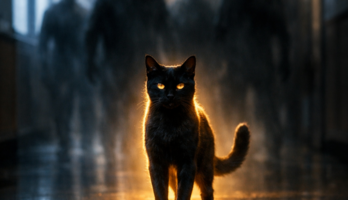Текст Лекции (изначальный) (1157953), страница 41
Текст из файла (страница 41)
Millions of Americanteenagers are “hooked” on soap operas. “General Hospital” has been the number one soapfor several years among teens – partly because its 3:00 airtime means they can dash fromschool bus to the living room in time to tune in.Just like many others teens, Christie Clark gets home at 3:00 and turns on her TV setto one of her favorite soap operas “The Guiding Light”. During the one-hour show, she tapes“General Hospital” on her new video tape recorder, a birthday gift from her parents. She thenwatches another soap for a half an hour. At 4:30 she plays a tape “As the World Turns” whichher machine recorded while she was at school. After dinner with her family, Christie plays the“General Hospital” tape.
At 8:30, she calls her best friend Tina, to tell her all about the soapsTina missed. Afterward, Christie does a few hours of mathematics, history, and psychologyhomework and goes to bed at 11:00.All the programs began to feature teenagers in important roles. Soon, the youngcharacters became involved in the plot lines that make up the world of soaps. Next, theywere involved with some every adult problems, among them pregnancy, drugs, and almostevery possible aspect of sex and romance. How could teenager viewers resist such thrills?They couldn’t – and they didn’t.The reason for the soaps’ success in winning the teen audience is clear: they offerescapist entertainment featuring young characters with which teens would like to identifytheseves.
The serials provide an escape from the routine of school, family life andhomework. Christie Clark says, “When I’m bored, I come home from school and it’s fun towatch them”. The years from twelve to nineteen are ones of great questioning of identity.It’s also a time of communication breakdown with authority figures. Soap operas serve asmodel for situations teens might face. Some of them say that watching a soap characterdeal with a difficult situation has helped them work out problems in their own lives.Studies among teens in the US Northeast have yielded some surprising conclusions.One is that teens who watch soaps tend to take fewer drugs than those who don’t.
In thelong run, soap operas with all the shortcomings uphold many traditional American values.Despite the scandals, the good guys always win in the end, and villains repent, die, or arebanished to a prison or a mental hospital.Some phychiatrists think that soaps bridge the gapbetween generations.
Grandparents and parents can watch the serials together and talkabout difficult problems with their kids.Based on “What it is like in the USA” by Natalia Tokareva and Victor Peppard..1.Read the texts and express your opinion on the context and ideas:Products and CommercialsTake any commercial with a simple message, repeat it again and again, and theproduct, if it’s good, will sell, even if the spot is mindless and annoying. It’s fixing thename of the product in the consumer’s mind with a quick, catchy phrase that’s important.The moral, delivered, is plain: “Ladies, who’ve learned - buy…” This is very much therule for women’s portrayals in thirty-and sixty-second spots, which occur with alarmingregularity during the daytime hours, when stations may sell up to sixteen commercialThe cumulative effects of commercials are awesome.
An endless procession ofcommercials on the same theme, all showing women using household products in thehome, raises very strong implications that women have no other interests except laundry,dishes, waxing floors, and fighting dirt in any form. Seeing a great many suchadvertisements in succession reinforces the traditional stereotype that women’s place isonly in the home.Ask anybody in advertising why commercials still show a woman bumbling around in afearful daze, and you’ll find always the same answer: “Because our research tells us it isso”. Agencies devote hundreds of thousands of dollars to find out who’s buying theirclient’s stuff and why. Marketing researchers dissect and analyze the buying habits,educational and income levels of every member of the family.
They even know what we dowith our leisure time, our. life-style data- activities, interests, and opinions. All these servesto get inside women’s heads in order to get inside their pocketbooks.You are probably quite sure that commercials have absolutely no effect on you. Maybethey don’t. But a shaken agency copywriter told me the first word his child spoke was“McDonald’s”.From “Literary Portraits»On AdvertisementsI am ready to bet that in your naivety you believe that advertising is the art of keepingcertain brands permanently in due public eye. This is a misconception. Advertising - as Iread somewhere - is the art of convincing people that they want certain things they do notwant at all, of making them dissatisfied with everything they have; of making themthoroughly unhappy.Advertisements in America are ubiquitous.
They fill the newspapers and cover thewalls; they are on picture- cards and in your daily post, on pamphlets and on match boxes.They are shouted through loud speakers And shown in the cinemas. They are flashedelectrically and written on the sky by airplanes and whispered in front of your windowwhile you sleep so that you should dream of toothpaste, shoe polishes and soap flakes.What are the special ways of making people particularly unhappy?Repetition. If you hear these 5 letters: L.S.M.F.T. for the first time in your life, youremain cool and unimpressed L.S.M.F.T(Lucky Strike Means Fine Tobacco). “And whatthen?” you say.
It is not funny, it is not witty, and in fact it is simple, silly and flat. Thenyou try to find the President’s latest speech in the newspaper but you cannot find it. Youfind these 5 letters instead, L.S.M.F.T. You travel on the subway and try to think of a replyto an important and annoying letter you have received but you cannot think of anything,because wherever you look you see only 5 letters: L.S.M.F.T. Then you take a walk incomparative solitude, thinking of your beloved, and suddenly a neon advertisement flashesinto your eyes: L.S.M.F.T. You want to write a poem on the uselessness and vanity ofworldly pleasures but you only write down 50 times: Lucky Strike Means Fine Tobacco.If you try to recite the alphabet you are sure to slip up: g, h, I, j, k, l, s, m, f, t…At this stagethe advertisement has achieved its purpose.
You will then and there take a solemn oath thatwhatever should happen in the future, however long you may live, you would do withoutsmoking altogether than put one single Lucky Strike into your mouth.Logical Conclusions . Advertisements have a special logic of their own. They tell you byUUimplication that if you use a certain orange squeezer in your kitchen, you remain young,lovely and beautiful; if you wash with a certain soap, you become rich; if you wear acertain type of underwear you inherit a large sum from a wealthy uncle and if use only aspecial kind of tomato ketchup you learn foreign languages more easily.The Empire of Soap OperasEvery country has the radio and t.v.
service it deserves…American radio and televisionis the reverse of the Shakespearean stage. In Shakespeare’s time the world’s greatest dramaswere acted with the most primitive technical arrangements; on the American air the world’smost primitive writing is performed under perfect technical conditions.. Public opinion, taste and culture are led and directed by laxative, cigarette, and soap andcheese companies, which buy the time on the radio and television, during which they try toconvince you that their laxative is tastier, more efficient, cheaper and more beautiful to look atthan any other laxative in the world. To fill up time between two commercials, they hire somecomedians who crack a number of stale jokes and laugh at them themselves, loudly andheartily.
Of course, some of them are funny and amuse you most of the time, but these arevery rare exceptions.This system was hailed as the real freedom. No state control, they boasted, no censorship.Some keen observers, however, noticed the real aim of laxative firms was not to raise thecultural standard of the nation but to sell more laxatives to people whether they needed themor not. In this they succeeded; and the result is American broadcasting.Everybody and everything is ‘Hooperated’.















